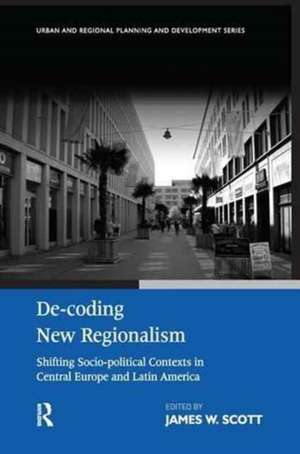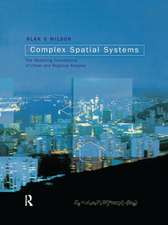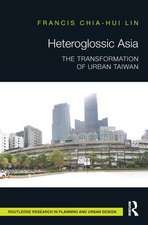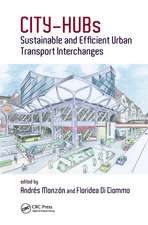De-coding New Regionalism: Shifting Socio-political Contexts in Central Europe and Latin America
Editat de James W. Scotten Limba Engleză Paperback – 28 noi 2016
| Toate formatele și edițiile | Preț | Express |
|---|---|---|
| Paperback (1) | 469.34 lei 6-8 săpt. | |
| Taylor & Francis – 28 noi 2016 | 469.34 lei 6-8 săpt. | |
| Hardback (1) | 1109.18 lei 6-8 săpt. | |
| Taylor & Francis – 12 ian 2009 | 1109.18 lei 6-8 săpt. |
Preț: 469.34 lei
Nou
Puncte Express: 704
Preț estimativ în valută:
89.81€ • 94.00$ • 74.75£
89.81€ • 94.00$ • 74.75£
Carte tipărită la comandă
Livrare economică 31 martie-14 aprilie
Preluare comenzi: 021 569.72.76
Specificații
ISBN-13: 9781138276345
ISBN-10: 1138276340
Pagini: 272
Dimensiuni: 156 x 234 mm
Greutate: 0.45 kg
Ediția:1
Editura: Taylor & Francis
Colecția Routledge
Locul publicării:Oxford, United Kingdom
ISBN-10: 1138276340
Pagini: 272
Dimensiuni: 156 x 234 mm
Greutate: 0.45 kg
Ediția:1
Editura: Taylor & Francis
Colecția Routledge
Locul publicării:Oxford, United Kingdom
Notă biografică
Dr James W. Scott is a lecturer at the Leibniz Institute for Regional Development and Structural Planning, Germany.
Recenzii
'This is a comparative collection that critically examines the new regionalism debate through the examination of specific cases. It is a valuable contribution to the discussion of regional politics, institutions and policies, as well as to the literature on modernization and democratization in Latin America and Central and Eastern Europe.' Michael Keating, European University Institute, Italy
Cuprins
Part 1 Introduction: Aims and Outline of the book; Chapter 1 Introduction, James Wesley Scott; Part 2 Systemic Transformation and the Politics of Scale; Chapter 2 Systemic Transformation and the Implementation of New Regionalist Paradigms: Experiences of Central Europe and Latin America, James Wesley Scott; Chapter 3 Between Crisis and Adaptation: Economic Aspects of Institutional Change in Latin America and Central Europe, Carlos Riojas; Chapter 4 Policies of Regionalization in a Transformational Context: Some Conceptual Considerations, Karl-Dieter Keim; Chapter 5 Regions, New Regionalism and Regime Theory: Deciphering Post-Socialist Institutional Change, Iwona Sagan; Part 3 Case Studies of Region-building in Latin America; Chapter 6 An Indecisive New Regionalism in Mexico? The Case of Jalisco, Basilio Verduzco Chávez; Chapter 7 Decentralization and Regions in Brazil: An Economic Development Perspective, Anita Kon; Chapter 8 Redefining Regional Policies in Venezuela: From Decentralization to Recentralization, Catalina Banko; Part 4 Case Studies of Region-building in Central Europe; Chapter 9 Regional Development and ‘New’ Regionalism in Poland, Grzegorz Gorzelak; Chapter 10 Regionalization in Hungary: Options and Scenarios on the ‘Road to Europe’, Ilona Kovács Pálné; Chapter 11 ’Reaching for the Stars’: East German Urban Regions and the Vicissitudes of Place-Making, Hans-Joachim Bürkner; Chapter 12, József Benedek; Part 5 Conclusion; Chapter 13 New Regionalism and Evolving Territorialities of the State, James Wesley Scott;
Descriere
Bringing together comparative case studies from Central Europe and South America, this book focuses on 'new' regions - regions created as political projects of modernization and 're-scaling'. Through this approach it de-codes 'New Regionalism' in terms of its contributions to institutional change, while acknowledging its contested nature and contradictions.






















